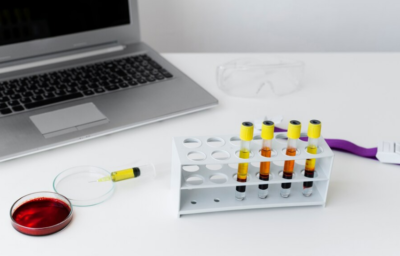In 1899, a man by the name of Henry Bliss was struck by an electric-powered taxicab in New York City. His death in hospital the following day was the first recorded instance of a person being killed in a motor vehicle accident in the United States. In the 120-plus years since, car accidents have unfortunately become a common feature in American society.
Today, there are approximately 6 million car accidents in the US every year, resulting in more than 30,000 deaths annually. A further 3 million are injured, including 2 million who sustain permanent injuries.
If you are involved in a car accident, particularly one that wasn’t your fault, it is important to understand who to call. From emergency services and police to insurance companies and experienced lawyers, there are several steps you should take. These phone calls can help to ensure that you receive the justice and compensation you deserve.
In this blog post, we will take a closer look at the importance of making these phone calls in the aftermath of a car accident. Let’s get started.
Call the Emergency Services
In the immediate aftermath of a car accident, you should aim to get yourself and others in your vehicle to safety. This means moving to the side of the road, whether with or without your vehicle depending on the nature of the accident. If you are in a position to, check on the well-being of any occupants in other vehicles involved in the accident (unless it was a single-vehicle crash).
Take some time to assess any injuries you have sustained. Even if you feel fine and no one has sustained any visible injuries, it is important to contact the emergency services. In many cases, people are unable to gauge the extent of injuries due to shock.
Call the Police
Depending on the nature of the accident, the police may already be aware of the crash (particularly if medical services arrive at the scene). If you are unsure, do not hesitate the contact the police and report the accident if you are in a position to do so.
It is imperative that a police report is filed, as it will help to determine liability when you seek compensation. While police are at the scene, you may be asked to provide insurance details and basic personal information. Remember to never accept or assign blame at the scene of a car accident.
While at the scene of the accident, you should also gather potential evidence (if you are in a position to do so). For example, take photographs of the crash scene, vehicle damage, area conditions, traffic signals, and skid marks. These photographs may be crucial to proving liability later on.
Click here to find out how to best gather evidence in the aftermath of a car accident.
Call Your Insurance Company
Where possible, identify the other drivers who were involved in the crash and get their basic information, such as name, contact details, car insurance details, and driver’s license numbers.
The next step is to notify your car insurance company. Regardless of who is at fault in a car accident, you should contact your insurance company as soon as possible (within a few days). If you fail to provide prompt notice of your accident, your coverage could be jeopardized.
We recommend that you speak to a car accident lawyer about the advantages and disadvantages of filing a claim with your insurer.
Call an Experienced Car Accident Lawyer
To maximize your chances of securing the justice and compensation that you may be entitled to after an accident that was not entirely your fault, remember to speak to an experienced car accident lawyer. Legal claims can be complicated and lengthy, which is why having an experiencing lawyer working for you is so important.
Ultimately, a car accident lawyer will help you obtain the evidence necessary to prove liability in a claim. Their work also includes:
- Obtaining evidence of damage
- Negotiating with insurers and/or defendants
- Organizing medical records
- Negotiating a satisfactory settlement
In the aftermath of a car accident, it is recommended that you write out what happened. Some of the details you should try to record here include:
- The time, date, and location of the accident
- The direction you were driving at the time of the accident
- What you were doing at the moment of the impact and your vehicle’s location on the road
- What the other car/s were doing at the time of the accident
You may also wish to keep a journal that includes details on the physical and emotional toll of the accident.
If you have any specific questions about your case at any point, you will be able to get answers and support from your chosen lawyer. Given that every state has different car accident laws, it is important that you hire a local lawyer that is able to represent you as best as possible.
Who to Call When You’ve Been in a Car Accident
Understanding who to call in the aftermath of a car accident is essential, both to your health and well-being as well as for you chances of securing compensation. For more information on car accident protocols, we recommend that you speak to an experienced and professional car accident lawyer.
Like this blog post on when to call the police and other steps following a car accident? Be sure to check out our other informative articles on a wide range of interesting topics.










